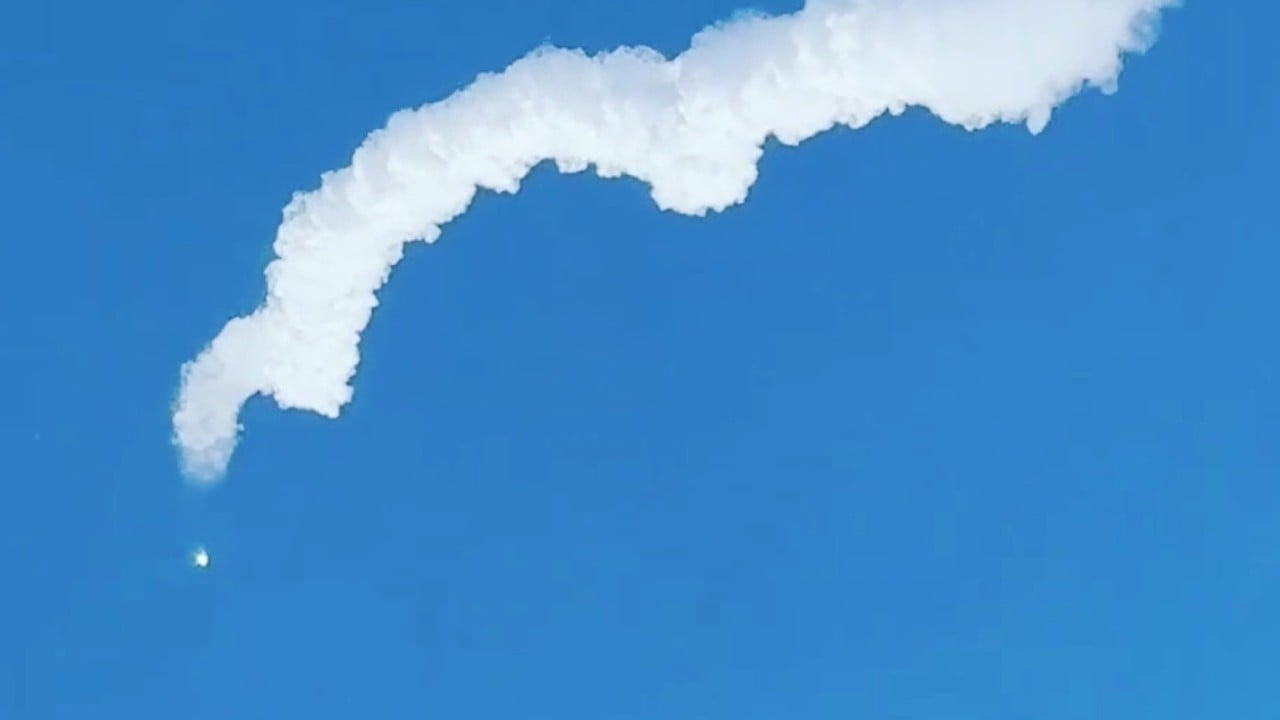China’s push to build broadband mega constellations could face further delays after one of the country’s leading privately developed rockets failed after take-off last week from the Jiuquan Satellite Launch Centre in the Gobi Desert.
Advertisement
The Zhuque-2E – an upgraded version of the LandSpace rocket that saw the company beat SpaceX in the race to send the world’s first methane-fuelled projectile into orbit – experienced a flight anomaly after lift-off on Friday morning, the company said.
LandSpace apologised to its unnamed clients and pledged to conduct a transparent investigation into the failure of the rocket, which successfully placed two satellites on its maiden flight in November.
According to a Beijing-based space engineer who asked not to be named because of the issue’s sensitivity, the lost payload is widely believed to consist of four experimental satellites for Guo Wang, China’s state-backed network that aims to rival SpaceX’s Starlink.
The setback came a day after LandSpace – whose only active rocket is the Zhuque-2E – was named preferred bidder to launch orbiters for the Qianfan constellation, a Shanghai-backed initiative comparable in scale to Guo Wang’s planned nearly 13,000 satellites.
Advertisement
Both Guo Wang and Qianfan have stepped up launch efforts to meet their near-term deployment goals, but it is likely the Zhuque-2E failure may hit the Shanghai project harder, especially since it has not launched a single satellite since March.
Guo Wang, which aims to have 400 satellites in orbit by 2027, has so far launched 72, while Qianfan’s planned deployment of 648 by the end of this year remains stalled at 90.

